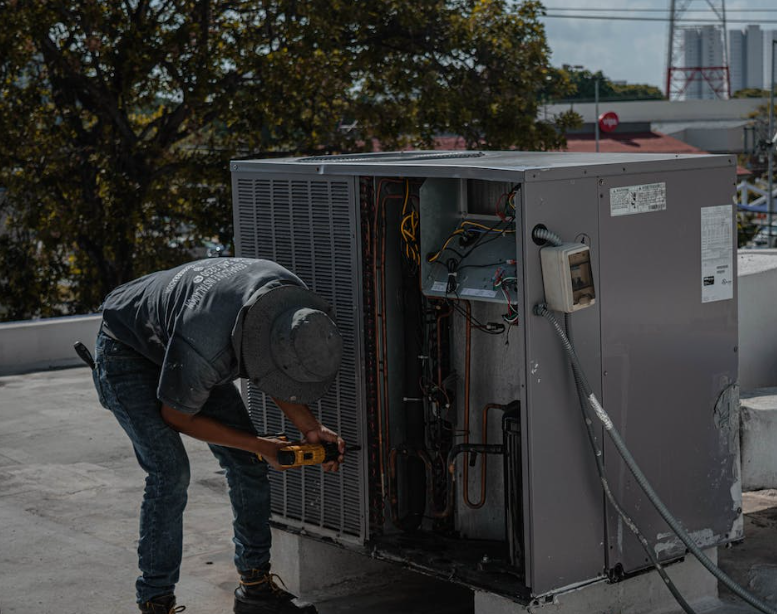HVAC classes near me

Ever thought about diving into the world of HVAC? It's not just about heating, ventilation, and air conditioning it's about creating cozy homes and comfortable workspaces. As an HVAC technician, you'll be the hero behind the scenes, ensuring that everyone stays warm in the winter and cool in the summer.
If you're considering a career switch or want to level up your skills, look no further! Dreambound offers top-notch HVAC classes designed to give you the edge you need in this dynamic field. Whether you're dreaming of owning your own HVAC business or simply want to be the go-to expert in your community, our courses will set you on the right path.
On Dreambound, there are 185 HVAC programs, 41 upcoming classes, and the average class length is 6 months.
Discover why Martesha Kelley recommends Dreambound: "Dreambound had classes available in my area, and the information they provided was easy to understand. I got the hang of each class without any trouble."
Where can an HVAC technician work?
HVAC technicians operate in diverse environments, including residential, commercial, and industrial settings. Additionally, they may serve in hospitals, educational institutions, government buildings, and healthcare facilities. The nature of their work is often physically demanding, involving tasks like lifting, climbing, and maneuvering in tight spaces. Moreover, they might encounter various weather conditions while working outdoors, further highlighting the versatility and challenges inherent in their profession.
HVAC Classes by City
In order to help you find HVAC class, at Dreambound we've gathered the most comprehensive list of HVAC classes in the US. Below you can find a list of HVAC classes, organized by city. If you don't see your city listed, you can always search by zip code.
How to Become an HVAC Technician
We know taking the first step to becoming an HVAC technician can be scary. That's why we're trying to demystify the process by writing guides on how to become an HVAC technician. Since State process or requirements may vary, we've written separate guides for each state:
- How to Become an HVAC Technician in Alabama
- How to Become an HVAC Technician in Alaska
- How to Become an HVAC Technician in Arizona
- How to Become an HVAC Technician in Arkansas
- How to Become an HVAC Technician in California
- How to Become an HVAC Technician in Colorado
- How to Become an HVAC Technician in Connecticut
- How to Become an HVAC Technician in Delaware
- How to Become an HVAC Technician in District of Columbia
- How to Become an HVAC Technician in Florida
- How to Become an HVAC Technician in Georgia
- How to Become an HVAC Technician in Hawaii
- How to Become an HVAC Technician in Idaho
- How to Become an HVAC Technician in Illinois
- How to Become an HVAC Technician in Indiana
- How to Become an HVAC Technician in Iowa
- How to Become an HVAC Technician in Kansas
- How to Become an HVAC Technician in Kentucky
- How to Become an HVAC Technician in Louisiana
- How to Become an HVAC Technician in Maine
- How to Become an HVAC Technician in Maryland
- How to Become an HVAC Technician in Massachusetts
- How to Become an HVAC Technician in Michigan
- How to Become an HVAC Technician in Minnesota
- How to Become an HVAC Technician in Mississippi
- How to Become an HVAC Technician in Missouri
- How to Become an HVAC Technician in Montana
- How to Become an HVAC Technician in Nebraska
- How to Become an HVAC Technician in Nevada
- How to Become an HVAC Technician in New Hampshire
- How to Become an HVAC Technician in New Jersey
- How to Become an HVAC Technician in New Mexico
- How to Become an HVAC Technician in New York
- How to Become an HVAC Technician in North Carolina
- How to Become an HVAC Technician in North Dakota
- How to Become an HVAC Technician in Ohio
- How to Become an HVAC Technician in Oklahoma
- How to Become an HVAC Technician in Oregon
- How to Become an HVAC Technician in Pennsylvania
- How to Become an HVAC Technician in Rhode Island
- How to Become an HVAC Technician in South Carolina
- How to Become an HVAC Technician in South Dakota
- How to Become an HVAC Technician in Tennessee
- How to Become an HVAC Technician in Texas
- How to Become an HVAC Technician in Utah
- How to Become an HVAC Technician in Vermont
- How to Become an HVAC Technician in Virginia
- How to Become an HVAC Technician in Washington
- How to Become an HVAC Technician in West Virginia
- How to Become an HVAC Technician in Wisconsin
- How to Become an HVAC Technician in Wyoming

Justine Tacmo is part of the Growth team at Dreambound. He assists the organization by updating critical information so students receive the most up-to-date information for their desired trade schools. Besides, he has a passion for writing and expresses it through poetry, covering themes of life, love, and mental health, which is also his advocacy.



